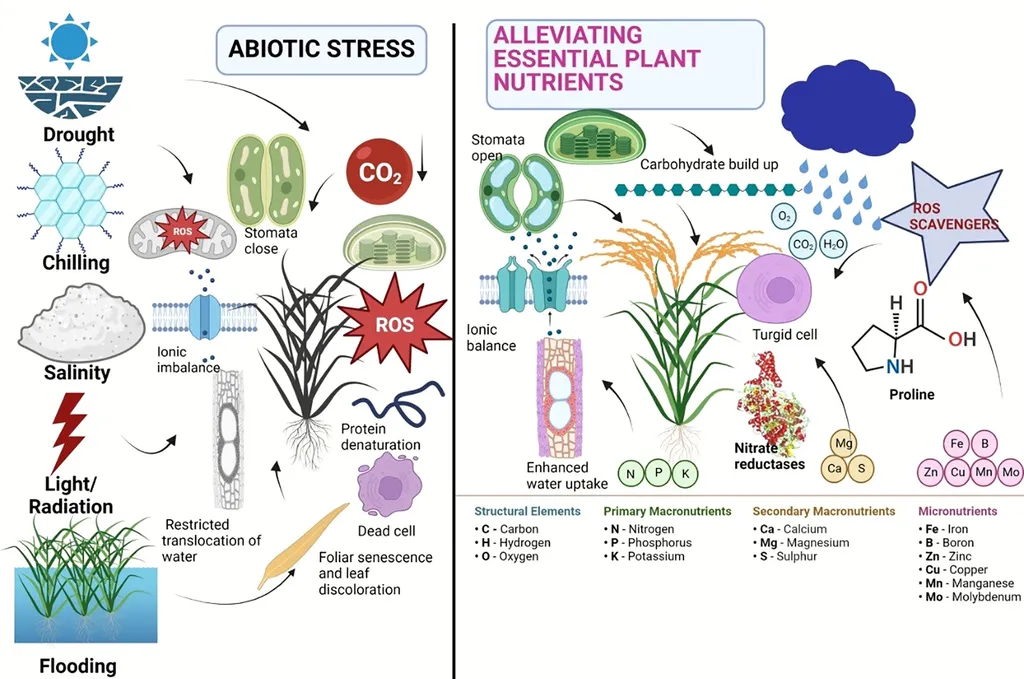In the heart of Guizhou University, China, a team of researchers led by Shuang Wang from the State Key Laboratory of Green Pesticide has been unraveling the intricate web of plant stress responses, with a particular focus on the often-overlooked hero: tryptophan. Their recent study, published in the journal *Plant Communications* (which translates to *Plant Messages*), sheds light on the sophisticated crosstalk of tryptophan-derived metabolites and their pivotal role in enhancing plant resilience against environmental stresses.
Plants, much like humans, face a barrage of stresses that can severely impact their health and productivity. From drought and salinity to pathogen attacks, these challenges constrain crop yields worldwide. Metabolic regulation has long been recognized as a crucial strategy for bolstering plant stress tolerance, and tryptophan, a versatile amino acid, is at the center of this metabolic storm. “Tryptophan is not just a building block for proteins; it’s a precursor to a multitude of natural products that play vital roles in plant health,” explains Wang.
The study delves into the biosynthesis and biofunctions of tryptophan metabolites, highlighting their crosstalk in regulating plant stress resistance. Tryptophan-derived compounds like auxin, melatonin, and glucosinolates have been shown to play significant roles in plant development and defense mechanisms. However, the intricate interplay between these metabolites under stress conditions has remained largely unexplored until now.
One of the most compelling aspects of this research is its potential application in sustainable agriculture. By understanding the crosstalk among tryptophan metabolites, scientists can develop targeted strategies to enhance crop resilience. This could revolutionize the way we approach plant breeding and genetic engineering, leading to more robust and productive crops.
The implications for the energy sector are also noteworthy. Many bioenergy crops, such as switchgrass and Miscanthus, are often grown in marginal lands where they face various abiotic stresses. Enhancing their stress tolerance through metabolic engineering could significantly boost their yield and viability as renewable energy sources.
Wang’s team emphasizes that their work is just the beginning. “This study provides a fundamental framework for understanding the regulatory roles of tryptophan metabolites in plant health,” she says. “The next step is to translate this knowledge into practical applications that can benefit farmers and the broader agricultural industry.”
As we grapple with the challenges of climate change and food security, research like this offers a glimmer of hope. By decoding the complex language of plant metabolism, we can unlock new ways to protect and enhance our crops, ensuring a more sustainable and resilient future. The study, published in *Plant Communications*, not only advances our scientific understanding but also paves the way for innovative solutions in agriculture and beyond.

